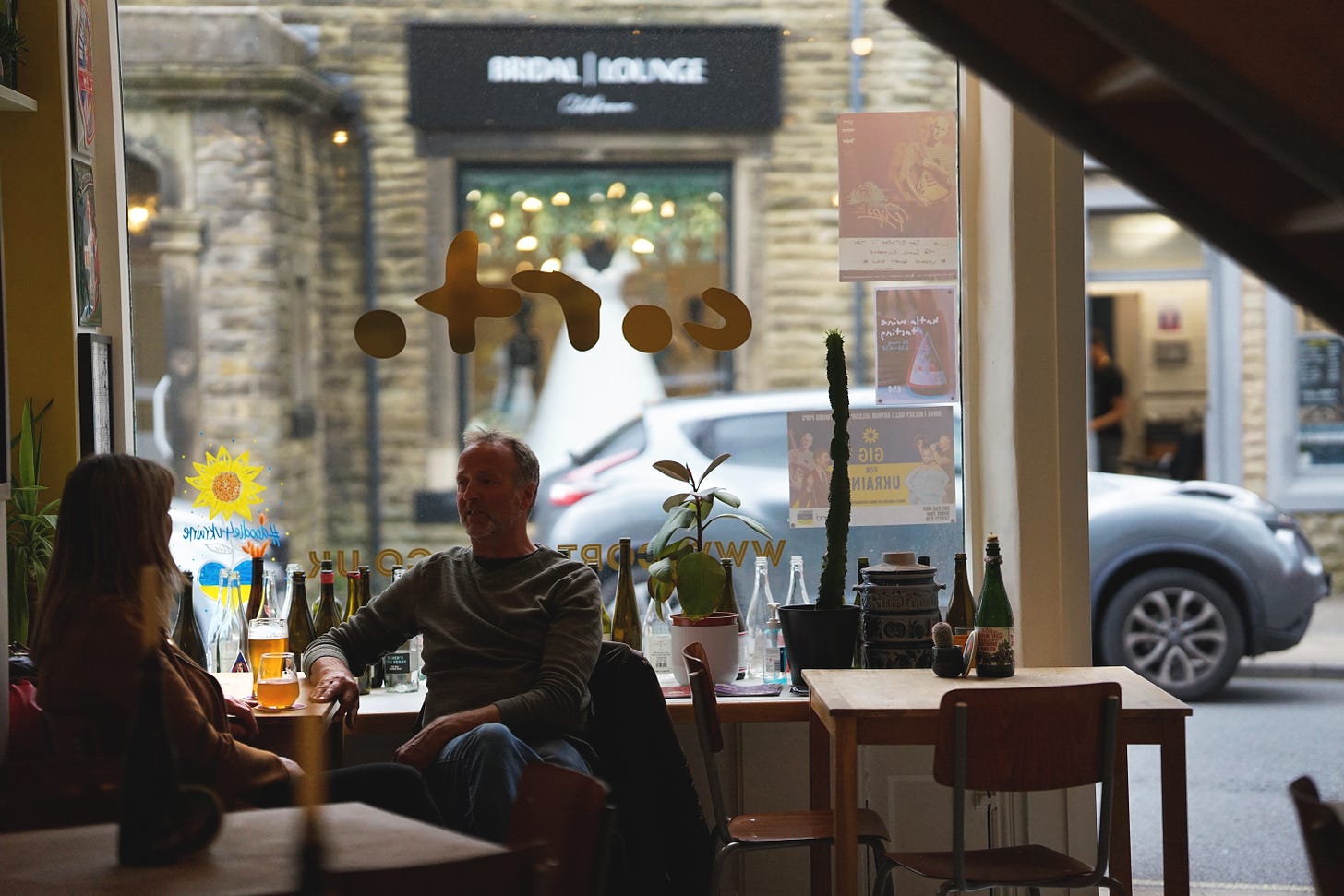In the December of 2021, I sat on table six in my empty, closed bar, chairs still on tables, lights off, and had a panic attack about the state of everything. The bar was not doing well, and Omicron had been announced as a true danger to the public that morning. We had been counting on the upcoming Christmas trade to change our fortunes, having had a tough year of slowing sales and increasing costs. Things had not yet recovered from the pandemic, and we had hoped to start building our business by now, not closing it.
We got through that Christmas through endless pivoting, and we got through another one too. Now, after almost three years of Corto, the bar will close for good this Sunday the 17th September.
How we got to this point has not been a sudden occurrence, however it may seem. Ever since we opened our doors we have been tweaking and reducing our original business plan to suit our local customer base, and changing our plans to fit with relentless external tragedies—pandemics, war, economic collapse. We stopped selling rare and fascinating natural wines in favour of more affordable, simpler ones. We changed our beer list to fit the demand of “pale ale? lager? something fruity?”
I don’t feel bitter about these changes, and I certainly don’t regret moving to suit our customers in order to stay open. But I want to be clear about the reality of opening a bar like Corto in a small, rural town—even one as permanently lauded in the national press as being the “ideal beer staycation destination”. Last week we opened and drank three bottles of Riesling worth £100 because after three attempts to drum up interest in a tasting event (which we have been repeatedly told by well-meaning folks that we should do more of) only two people came along. The world of premium and craft drinks is not what it was, or what we believe it to be. I sell three times as much basic organic Tempranillo as I do orange wine or sour beers.
None of this is surprising to me, but I had hoped to be able to bring some sort of niche to a willing audience. In many ways, it worked. In one obvious way—the fact that we are closing down—it has not. Please do not see this as a complaint. I just want other entrepreneurs with plans to open similar businesses to understand that it is not a lucrative endeavour. At all. I must see Corto as a passion project in order to feel anything other than sadness, at this current moment. We tried, we did our best, it ran its course. On to the next thing.
This morning I watched a vlog by motorcycle racer Lee Johnstone, who suffered a serious accident while racing earlier this year, and who is recovering remarkably well. It was so good to see. He mentioned, briefly, the sort of comments he receives in passing from fans he meets out and about. I felt like while he made it sound flippant, this was one of the main reasons for making his video.
“So that’s you done with racing now then?” Apparently this seems like an appropriate thing to say to someone who had a blood transfusion at the side of the road earlier this year, whose entire life has been dedicated to racing, who spends every day recovering and rehabilitating his body in the hope of getting back onto a bike.
It struck me. People are capable of such unwitting levels of blasé unkindness. I recognised it, because we have had similar at the bar—rumours of what our plans are, and where we are going to work next. Pointed questions about our financial situation. Constant grillings about what we want, what we’re doing, and where we’re going. As Lee said in his video, folk don’t mean it to sound this way. They’re just making conversation, and they don’t really know you, so they don’t understand what’s hurtful and what is a genuinely appropriate level of inquisitiveness.
I’d ask, and I’m going to do my best to do this too as I’m sure I’ve been guilty of similar crimes, that people checkpoint their curiosity before they open their mouths. In a way, Corto has become a public interest, and it’s understandable that people feel a desire, or even a right to know what will happen to it next. But it was ours, and it always was. Our life, our bricks and mortar dream, and we are finding it hard to discuss the minutiae of it over and over again. Just as Lee must find it difficult to reply to people who, genuinely, want to know about the future of his career, I don’t know what to say anymore. I don’t have a plan. I know what I want, but it’s deeply personal, and I can’t keep sharing my heart with the world so openly. I am not ready. And I hope that can be respected.
Other Stuff
I’ve already shared this everywhere, but Mary Oliver’s poem Breakage is healing in a way I can’t describe.
In researching for a story I’m writing for Hwaet! zine, I’ve rekindled my love for Saint Hildegard of Bingen.
Lee Johnston’s vlog, in case any of you were interested in watching the whole thing.
Have I shared this poem before? Anyway, it’s still relevant. Optimism by Jane Hirshfield.
If you’re into bikes, give the Kibosh Instagram account a follow. It’s the team I’m peripherally part of and we’re going to be selling some excellent merch soon.
A love story for us 90s/00s kids—Nelly and Ashanti are back together 💗






So excited to see you're writing for Hwaet! - love what they are up to (along with my other faves like Hellebore, Weird Walk, etc) - we're in such a great zine renaissance. Something to look forward to.